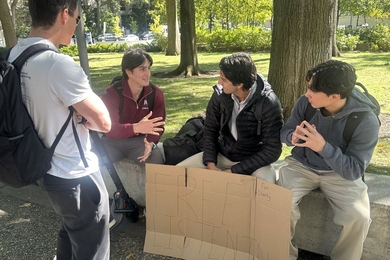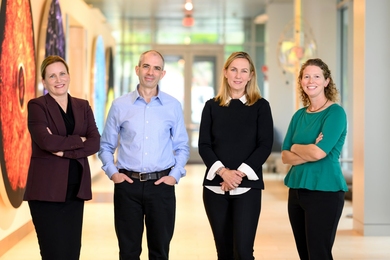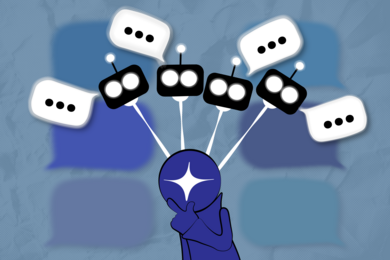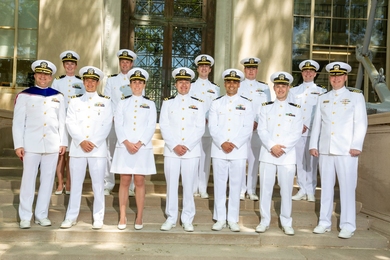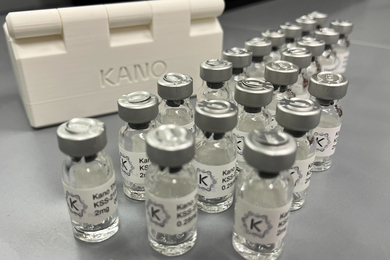The McGovern Institute for Brain Research at MIT will celebrate the formal opening of its new home in the brain and cognitive sciences complex this Friday, Nov. 4.
As part of the event, Massachusetts Sen. John Kerry, television host and author Jane Pauley, Nobel laureate Dr. Eric Kandel and Robert M. Metcalfe (S.B. 1968), the inventor of the Ethernet, are all scheduled to speak to a capacity crowd in the third-floor atrium of the new complex between 9:30 a.m. and 12:30 p.m. The community is invited to tune in via a live webcast.
As leaders in their own fields, each speaker will bring a unique perspective to the future impact of neuroscience on society -- ranging from treatments for brain disorders, to education, to the development of new technologies and industries.
The theme of the gala celebration is neuroscience and society, a topic of particular significance to donors Lore Harp McGovern and Patrick J. McGovern Jr., MIT Class of 1959. The McGoverns founded the institute with the largest donation ever made to MIT in the hopes that neuroscience research could play a leading role in improving the quality of human life and humans' ability to acquire knowledge and use it effectively.
"The McGovern Institute was created at the start of this new century, with a mandate to lead the world into a new era of systems neuroscience, the study of brain systems and behavior," said Professor Robert Desimone, McGovern's director. "What sets the McGovern Institute apart is not just a commitment to systems neuroscience but also the talent and teamwork of 12 world-class scientists. This is scientific collaboration at the highest level."
As a bonus, guests at Friday's celebration will be among the first to tour the new Athinoula A. Martinos Imaging Center at the McGovern Institute.
"The new brain imaging center is the bridge where brain knowledge meets human action and behavior, where knowledge from basic neuroscience research will be filtered in to how the human brain works and how it can go wrong," said John Gabrieli, head of the imaging center, an associate member of the McGovern Institute, and the Grover Hermann Professor in Health Sciences and Technology and the Department of Brain and Cognitive Sciences.
"Brain imaging is the only non-invasive way you can look at the organization of the human brain," says Nancy Kanwisher, Investigator at the McGovern Institute and the Ellen Swallow Richards Professor of Cognitive Neuroscience. "It's the closest we can come to these direct measurements of the brain in normal human subjects." Previously, she says, researchers undertaking human brain imaging studies had to go to the Athinoula A. Martinos Center for Biomedical Imaging at Massachusetts General Hospital's Charlestown campus. Now, in addition to that complementary facility, faculty and students will have easy access to MIT's own center, and there are plans to incorporate brain imaging into some classes.
The imaging center was made possible by generous gifts from the Martinos family, the McGoverns and an anonymous donor. The Harvard-MIT Division of Health Sciences and Technology (HST) program, the Department of Brain and Cognitive Sciences, and MIT's Office of the Provost contributed significant space, money and human talent.
MIT's new 411,000-square-foot brain and cognitive sciences complex, to be dedicated Dec. 2, will be the largest neuroscience center in the world. In addition to the McGovern Institute, it will house the MIT Department of Brain and Cognitive Sciences and the Picower Institute for Learning and Memory.
"This state-of-the art building gives us the resources needed for collaboration, as well the ability to take full advantage of the stunning array of new enabling technologies -- brain imaging, genetics, molecular biology and computer modeling," Desimone said. "Our location at the epicenter of these burgeoning transformations could not be more ideal."
A version of this article appeared in MIT Tech Talk on November 2, 2005 (download PDF).
